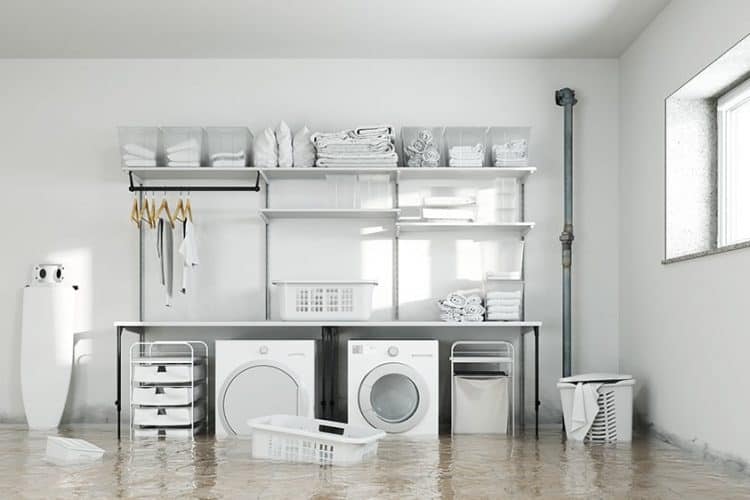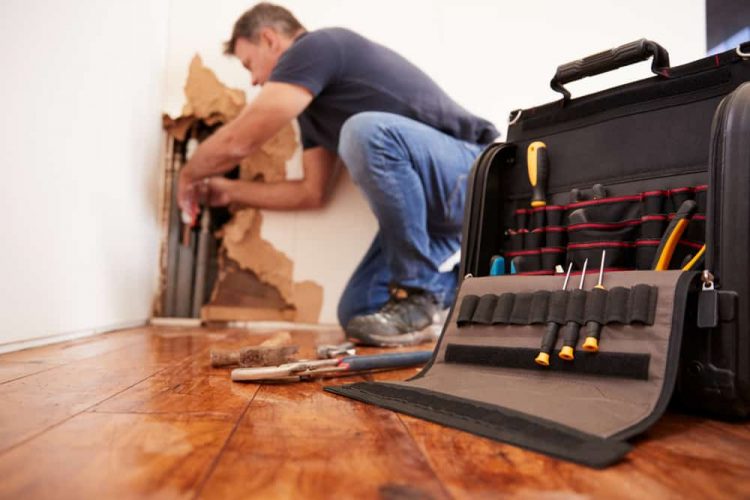Safety Tips to Protect Your Home and Prevent Property Damage While Away
Most people wait all year for the summer months to roll around because it’s finally the time to take that long-awaited vacation.
In fact, nearly 50% of Americans will take a vacation during the summer months! So, while you may already be preparing yourself and itching to get away ASAP, it’s important not to forget to prepare your property as well. To keep your much-needed (and deserved!) break as relaxing as possible, take a few minutes to follow these vacation safety tips to protect your home while you’re away.
Burglary
When it comes to protecting your home while on vacation, burglary is likely the first concern that comes to mind – and understandably so. According to the Bureau of Justice Statistics, burglary rates increase about 10% during the summer months. Fortunately, some of the best ways to protect your home from a break-in are also some of the simplest: secure everything and don’t broadcast that you aren’t home.
- Lock doors and windows.
Most would think this goes without saying, but surprisingly enough, nearly 30% of burglars enter homes through unlocked doors or windows. Before you leave, double-check all points of entry on your property. This includes windows on your second floor, doors connecting your home and garage, basement windows, and even pet doors. - Stop mail and deliveries while you’re away – including newspapers.
Mail, newspapers, and packages piling up at your door is a clear sign to burglars that no one’s home. Contact the postal service and your newspaper distributor and have them hold delivery while you’re gone. If you forget to stop your mail before you leave, or if a package is supposed to be delivered while you’re gone, ask a trusted neighbor to bring it in for you.
An Extra Word of Caution: Packages are especially susceptible to theft. In 2016, 11 million homeowners reported that they’d had a package stolen within the last year. plan your online orders to work with your travel schedule. Track your package, and if it’s still slated to be delivered when you’re not home, tell that trusty neighbor as soon as it’s on your doorstep. (Most delivery companies have up-to-the-minute delivery notifications.)
Fire
With no heaters running, and no one at home cooking or grilling, a fire breaking out while you’re on summer vacation may be lower on your concern list. However, an empty home doesn’t eliminate the risk of an accidental fire starting. Electrical fires are one of the most common types of home structure fire, and they can occur without day-to-day activity as a factor. Before departing on your trip, taking few basic safety measures at home can help you further reduce your risk of a fire.
- Test smoke detectors.
You should check your smoke detectors every month, but be sure to test them the day before you leave. All you have to do is press the “Test” button on each alarm. Early detection by smoke detectors can help save your property from being a total loss due to an unexpected fire, especially if your alarms are setup to notify your fire department when they sound. - Unplug unused electronics and appliances.
“Faulty wiring and outlets” are a leading cause of house fires. Unplugging your electronics and appliances can prevent an electrical fire in the event of a power surge – not to mention it saves money on your energy bill and protects electronics from getting fried. For those large appliances you’d rather not unplug – like your refrigerator – at least check the plug and wiring before you leave to make sure there’s no extensive wear or fraying.
FAQ: “Won’t my surge protectors be good enough?” Using surge protectors helps ground the excess electricity in normal surges from “high-powered electrical devices” (air conditioners, fridges, elevators). However, a surge protector still can’t stand up to the massive energy a lighting strike can cause. To be extra safe, switch surge protectors to “Off” and unplug before you leave.
Water Damage
Due to the number of weather-related and non-weather-related causes, water damage is perhaps the most likely type of damage your property could sustain when you’re away. It’s also the second-most frequent loss that homeowners file claims for. Between summer storms and the always-unpredictable plumbing or appliance leak, help protect your home from water damage while you’re on vacation by making sure rainwater has a place to go, and limiting the water supply for potential leaks.
- Clear any debris out of your gutters.
Your gutters help divert water away from your property. When they’re full of debris, the only other option is for the water to find tiny openings in your property. Clogged gutters and blocked downspouts can cause water to seep into the roofline or foundation, potentially causing extensive damage and mold. - Turn off water at the source.
Shutting off the main water supply before you leave protects your property from massive water damage in case something springs a leak while you’re away. If you can’t turn off the main water supply, be sure to turn off the supply valves to key appliances and plumbing, especially washing machines, dishwashers, and ice makers. As an extra precaution, you can drain the remaining water from your pipes after shutting off the supply.
Exterior Property Damage
The last major way to prepare home for vacation is to prepare the outside of it for severe storms that bring heavy winds. Every year, the greatest number of property damage claims come from wind and hail damage, with flying debris generally being the top cause of wind-related damage. Any unsecured item on the ground can become flying debris and cause extensive damage to roofing, siding, and windows. Protect your home by clearing your property of any potential wind hazards before you leave.
- Trim back trees near the property and remove dead branches.
Check for any trees with branches over your roof – especially if they’re weak or dead. Even in moderate-to-strong winds – not a storm – these can break free and damage your roofing or siding. Also clean-up any large sticks or branches that are already on the ground. - Secure or store outdoor furniture and planters.
Anchor down or put away anything outside that has the potential to blow over or become airborne. Strong winds can turn seemingly-harmless outdoor furniture, decor, and planters into dangerous debris, bound to damage anything in its path.
Don’t let your vacation be ruined by a call about an unexpected property loss. By taking these safety precautions before you leave, you’ll be able to sit back, relax, and stay in your “happy place” for the entirety of your trip. Happy vacationing!




